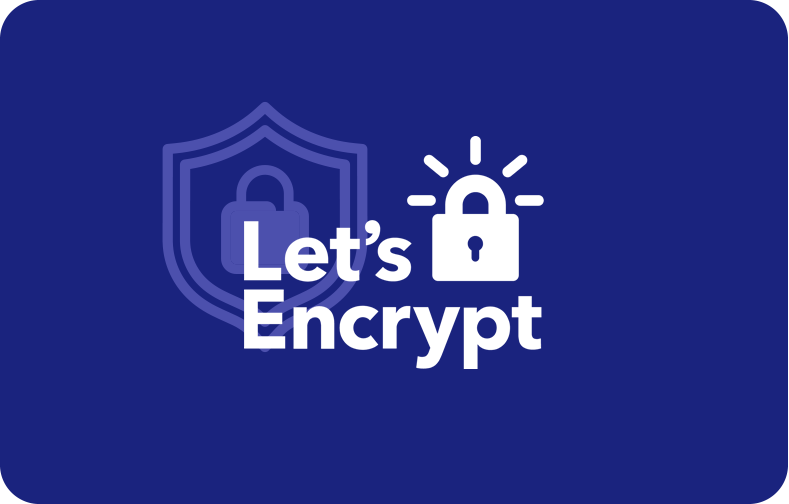How can I renew Let's Encrypt certificates?

Let's Encrypt is a free and open certificate authority that provides SSL/TLS certificates. The new certificate they issued is trusted by most browsers like Windows XP, Internet Explorer, etc. Moreover, they also fully automate the task of renewal and issuing certificates.
Here we have a blog post that covered the process of renewing installed certificates for multiple domain names with the help of Let's Encrypt.
How does Let's Encrypt Operates?
Let's Encrypt first validates the ownership of a domain and then issues a specific certificate. It runs on your domain name and creates a token with the help of the information available. Afterward, the server requests an HTTP to fetch the file, and the token gets validated. Further, the DNS records are verified by the server running the Let's Encrypt certificate. This process works with all web servers, including mail servers, VPS Server, etc.
Manual Renew Let's Encrypt Certificates for NGINX Servers
The NGINX generates an SSL/TLS certificate using the certbot NGINX wizard. Once you have installed the Python certbot NGINX plugin, you can use the following certbot command to generate the certificate:
copysudo certbot --nginx
For manually renewing SSL/TLS certificate using certbot, the following command is used:
copysudo certbot renew -- nginx
After entering this command, a dialogue box containing some steps for the renewal will be prompted. You can renew certificates that expire in less than 30 days. Once the certificate is renewed, it is valid for 90 days.
The NGINX reloads independently, so you are not required to start or stop the NGINX plugin. The visitors to the site will automatically get the renewed certificate after the successful completion of the task using certbot renew feature.
Automatic renewal of SSL certificates for NGINX

Setting up a renew automatically feature can help avoid manual labor. Using this feature, a server admin does not have to keep logging into a server repeatedly.
This task is accomplished by using cron. A cron is a command line that schedules jobs on Unix and similar operating systems. When you install certbot, a cron file gets automatically installed to /etc/cron.d/certbot location. In case the file is not created, use the following command to update the content:
copySHELL=/bin/sh
PATH=/usr/local/sbin:/usr/local/bin:/sbin:/bin:/usr/sbin:/usr/bin
0*/12***root certbot -q renew --nginx
With this, the certificates will be auto-renewed, running on NGINX. The code's '-q' flag prevents any output from getting logged.
Manual SSL/TLS Certificates Renewal for Apache Webserver
Renewing the SSL/TLS certificate on an Apache web server is quite similar to what it is on NGINX. The only difference between these web servers is the installation of certificates and the command used to renew them.
In the Apache web server certbot, Apache wizard generates the certificates for domains by using the following command on the domains :
copysudo certbot --apache
After the encrypted certificate is loaded, the next task is to set them up for renewal. The manual command to complete the process is:
copysudo certbot renew --apache
You will receive a dialogue box with further steps for a successful installation. Follow them, and your certificates will get renewed. To confirm the renewal, check the domain for the HTTPS tag.

Automatic renewal of Let's Encrypt SSL certificates for Apache Web Server
For managing the auto-renew of SSL certificates, you will require a cron file. While installing certbot, a/etc/cron.d/certbot directory will be created, allowing automatic renewal.
If it is not available, you can use the below-mentioned command and set up the auto-renewal process:
copySHELL=/bin/sh
PATH=/usr/local/sbin:/usr/local/bin:/sbin:/usr/sbin:/usr/bin
0*/12***root certbot -q renew --apache
Conclusion

The purpose of repeatedly renewing the SSL/TLS certificate is to validate a website's identity. With the certificate, users can stay assured that their encryption is up to date and that their data is safe during transit mode. Most certificates expire after every 90 days, but one can renew them in 60 days.
The above article has summed up how to successfully renew your TLS/SSL certification using the certbot command. After using these methods, one can successfully renew their specific certificates manually and automatically.
Frequently Asked Questions
What does the Let's Encrypt certificate mean, and is it free?
The Let's Encrypt SSL certificate is an automated and open certificate (CA) service provider introduced for the public's benefit. With this service, you get digital certificates that enable HTTPS for websites for free to create a highly secure web. These certificates can be issued for mail servers, web servers like VPS Server, and more.
For how long is the Let's Encrypt certificate valid?
The SSL certificate that Let's Encrypt generates is valid for 90 days, and one can manually renew it after 60 days. There are two reasons related to it:
Lesser misuse of certificates since they are in use for a shorter period.
The certificate generated by Let's Encrypt can be automatically renewed, making the task convenient.
Do Let's Encrypt offer EV or OV certificates?
Let's Encrypt does not provide Extended Validation (EV) or Organisational Validation (OV) certificates. You can receive these certifications from a certificate authority of your choice.
What IP addresses Let's Encrypt used to validate a web server?
Let's Encrypt does not have information on the list of IP addresses it uses to validate the content. This is because the IP addresses may change from time to time. So, currently, it does not provide this service.
Is Let's Encrypt supported on any web server?
Currently, Let's Encrypt is available on most of the mail servers of hosting providers. However, there are a few servers that are not supporting it. You must check your web server to verify whether you can install it for your domain.
Can I replace my current SSL certificate with Let's Encrypt certificate?
One can replace their SSL certificate with Let's Encrypt certificate. Once you configure your current domain name with Let's Encrypt certification, your multiple domain names will start working under it as long as it is still available.











